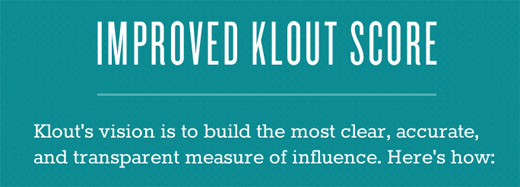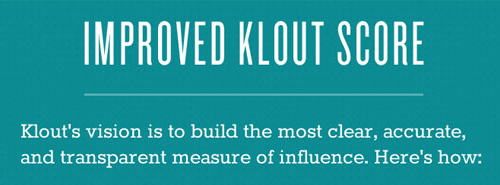
Klout debuted a revamped version of its popular social media service yesterday, including a new site layout and a more comprehensive way of measuring people’s social media influence. Klout now analyzes sites such as Wikipedia, Linkedin, and Instagram in addition to users’ Facebook and Twitter activity to measure more influence across several social media channels. A Klout score is now determined by 400 factors rather than 100. Klout says their new metrics will lead to an “improved Klout score,” and as of August 14, every Klout user had an updated score.
BIGfish’s Klout score didn’t change significantly–it increased by about 0.5–but various articles pointed out that pop star Justin Bieber’s score dropped from a perfect 99 to a 92, while President Barack Obama now has a perfect score of 99, up from 94.
Klout also has a new feature called “moments,” which the Company says will help users understand and shape their influence. A moment is described as “a social media post that has generated action from the people in your networks.” This feature will become available in the next few weeks.
What does the new Klout score mean for the social media world? It seems that Klout is headed in the right direction. Analyzing 12 billion points a day rather than one billion should certainly provide a more comprehensive picture of people’s social media influence.
However, Klout needs to be careful with how it uses this increased amount of data. Merely revamping Klout.com and increasing virtually everyone’s score will not make Klout a more popular or credible source of social media influence. In the past, Klout has had several critics who find the service confusing and unreliable–and they seem to have a point. For example, according to Klout, BIGfish is influential about “tacos.” Why? Klout doesn’t say.
What makes Klout popular is the fact that it gives users a concrete number they can associate with their online presence and overall influence amongst their network. If users see their Klout score improve, they get a sense of satisfaction and may even display it as a “badge of honor” amongst their social media peers. But that only applies to those who like and respect Klout’s methodology. If Klout wants to position itself as the authoritative source of online reputation, it needs to clarify how its ranking service really works.
